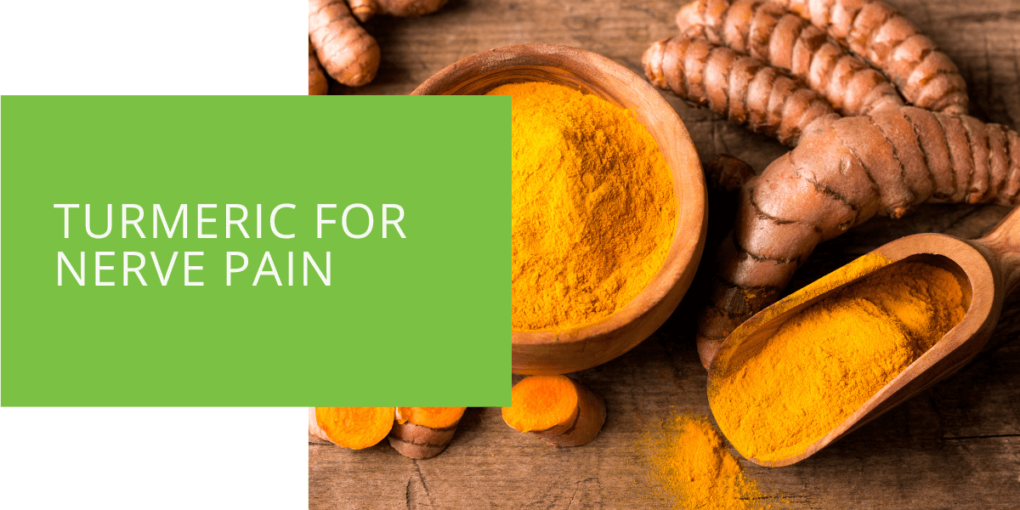Turmeric for Nerve Pain: How It Can Help
Nerve pain, also known as neuropathy, can cause discomfort, tingling, numbness, and other symptoms. While traditional medicine offers various treatments for nerve pain, using turmeric may help relieve neuropathic pain symptoms. Turmeric contains curcumin, an active ingredient with potent antioxidant and anti-inflammatory properties. This article will explore how turmeric can help with nerve pain relief and how to use it effectively.
What Is Turmeric?
Turmeric is a spice from the turmeric plant, native to India and Southeast Asia. Turmeric has been used in traditional medicine for centuries and is known for its healing properties. Turmeric is also a common ingredient in Indian and Middle Eastern cuisine.
Properties of Turmeric
Turmeric contains several components that contribute to its healing properties. Curcumin is the active ingredient in turmeric, responsible for its potent antioxidant and anti-inflammatory properties. Curcumin has been studied extensively for its ability to repair nerve damage and promote nerve regeneration.
Traditional Uses of Turmeric
Turmeric has been used in traditional medicine to treat various conditions, including digestive issues, inflammation, and pain. Turmeric has also been used in Ayurvedic medicine to treat nerve pain and promote nerve regeneration.
What Is Nerve Pain?
Nerve pain, also known as neuropathy, is a condition that affects the nerves in the body. Various factors, including injury, infection, and chronic diseases like diabetes can cause nerve pain. Nerve pain can cause various symptoms, including tingling, numbness, and burning sensations.
Types of Nerve Pain
There are several types of nerve pain, including peripheral neuropathy, which affects the nerves outside of the brain and spinal cord, and autonomic neuropathy, which affects the nerves that control involuntary functions like blood pressure and digestion.
Causes of Nerve Pain
Various factors, including injury, infection, and chronic diseases like diabetes can cause nerve pain. Other contributing factors to nerve pain include poor nutrition, alcoholism, and exposure to toxins.

How Turmeric Can Help with Nerve Pain
Turmeric has several properties that make it effective in relieving nerve pain.
Anti-Inflammatory Properties
Turmeric has potent anti-inflammatory properties that can help to reduce inflammation and swelling in the body. Inflammation is a common cause of nerve pain, and reducing inflammation can help to relieve nerve pain.
Antioxidant Properties
Turmeric is also a potent antioxidant, which can help protect the body from oxidative stress. Oxidative stress can cause damage to the nerves, and reducing oxidative stress can help to prevent nerve damage and promote nerve regeneration.
Analgesic Properties
Turmeric has analgesic properties that can help to reduce pain and discomfort. Turmeric can block pain signals in the body, which can help to alleviate the symptoms of nerve pain.
How to Use Turmeric for Nerve Pain
There are several ways to use turmeric for nerve pain relief.
Turmeric Supplements
Turmeric supplements are available in capsule form and can be taken daily to help reduce inflammation and alleviate nerve pain. It is important to follow the recommended dose and consult with a healthcare professional before taking turmeric supplements.
Turmeric Tea
Turmeric tea can also be an effective way to consume turmeric. To make turmeric tea, mix turmeric powder with hot water and ginger. Ginger can help increase curcumin absorption in the body, making turmeric more effective.
Turmeric Poultice
A turmeric poultice can be applied topically to the affected area to help reduce inflammation and alleviate nerve pain. To make a turmeric poultice, mix turmeric powder with water to form a paste. Apply the paste to the affected area and cover it with a bandage or cloth. Leave the poultice on for 20-30 minutes before rinsing it off.
It is important to note that turmeric can stain clothing and skin, so it is recommended to use caution when applying a turmeric poultice.
Potential Side Effects of Turmeric
While turmeric is generally considered safe, it can cause side effects in some people. Turmeric can interact with certain medications, including blood thinners and diabetes medications. It is important to consult with a healthcare professional before using turmeric if you are taking any medications.
In some people, turmeric can also cause digestive issues, such as nausea, diarrhea, and stomach cramps. It is important to start with a small dose of turmeric and gradually increase the dose to avoid digestive issues.
Conclusion
Turmeric has potent antioxidant and anti-inflammatory properties that can help relieve nerve pain and promote regeneration. Turmeric can be consumed in supplement form, made into a tea, or applied topically as a poultice. However, it is important to consult with a healthcare professional before using turmeric to treat nerve pain, especially if you are taking any medications.
While turmeric is generally considered safe, it can cause side effects in some people. By using turmeric correctly and under the guidance of a healthcare professional, you may find relief from your nerve pain and improve your quality of life.
In summary, turmeric can be an effective natural remedy for nerve pain relief due to its anti-inflammatory, antioxidant, and analgesic properties. It can be consumed in supplement form, made into a tea, or applied topically as a poultice. However, it is important to consult with a healthcare professional before using turmeric to treat nerve pain.

